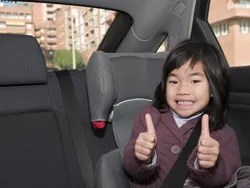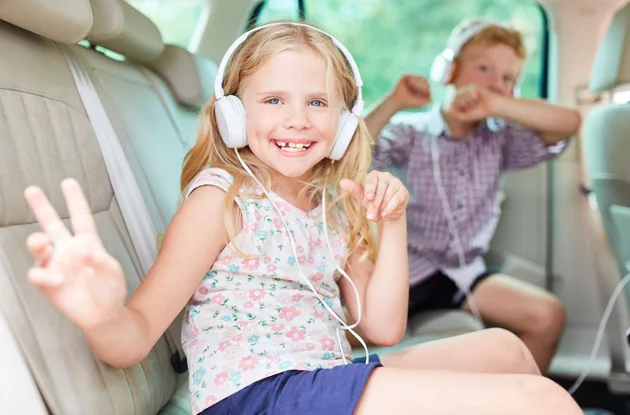What is road sickness?
Road sickness, also called motion sickness, can occur in cars, airplanes, boats, amusement park rides — anything that causes a shift or conflict in the equilibrium between the eye and ear. For example, when you are seated in a moving car, your inner ears (which monitor motions such as turning forward and backward, side to side, and up and down) detect that the car is moving, but your eyes (which monitor space and the direction of motion), when focused on an object within the car, do not. The brain gets conflicting signals, and nausea results. In addition to nausea, road sickness symptoms include headache, paleness, hyperventilation, dizziness, fatigue, drowsiness, and vomiting.

How to prevent road sickness on your travel itinerary:
—Play car games like “I Spy” or “Guess Who” that get the child to look outside.
—Listen to music or books on tapes while looking out the window; reading or playing handheld video games while in car adds to motion sickness.
—Place the child in the middle of the backseat so she can see out the front, rather than the sides, which can appear as a blur. Go up on the deck of the ship and watch the horizon; sit by the window of the airplane and look outside.
—Make frequent stops so kids can get out of car and get fresh air.
—Offer dry crackers to settle upset stomachs.
—Try covering the windows. Bright sun and glare can make the nausea worse.
—Parents or adults should not smoke in the car with kids.
—Avoid strong odors like cigarette smoke and smelly foods.
—Avoid heavy meals, especially greasy foods, caffeine, i.e., sodas, and salt, i.e. potato chips. Dairy products and foods high in sodium, protein, or calories have been associated with increased chances of motion sickness.
—Limit head movement by using pillows or a headrest.
What to do if your child gets sick:
—Have cold pads or cloths available to apply to your child’s face or neck.
—Always travel with a leak-proof container, such as re-sealable food bags, jars or empty coffee tins in case your child vomits.
—Talk to your doctor about medications that can prevent motion sickness. Motion sickness drugs should not be given to infants or young children without consulting a physician.
Dr. Gervais Fréchette, travel medicine specialist, is director of Le Docteur Medical Clinics in New York City and San Francisco. He can be reached at www.drfrechette.com.





















